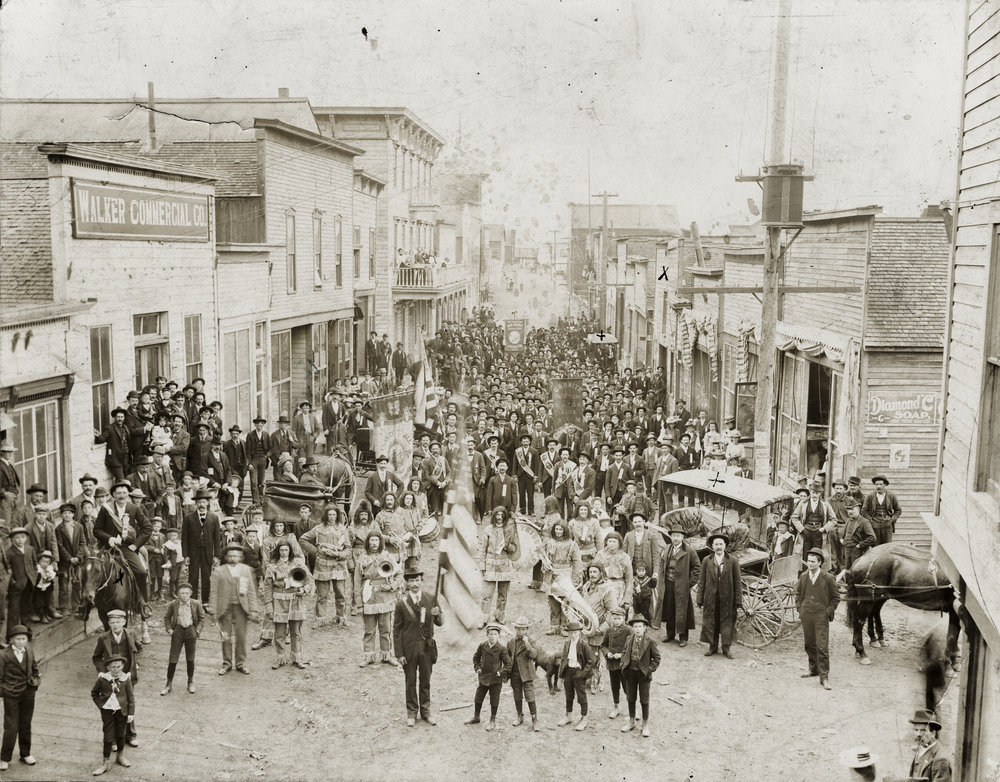The 7 Principles Needed To Secure Liberty And A Free Society
"Public policy that dismisses liberty or doesn’t preserve or strengthen it should be immediately suspect in the minds of a vigilant people."
What principles do we need to secure liberty and a free society?
That’s the question that renowned author and Frontier board member, Lawrence W. Reed answered yesterday at our event in Billings, The Seven Principles of Sound Public Policy. But for those who weren’t able to attend, I have laid out a brief recap of the seven principles Reed identified.
1. Free people are not equal, and equal people are not free.
When people are free to be themselves, to be masters of their own destinies, to apply themselves in an effort to improve their well-being and that of their families, the result in the marketplace will not be an equality of outcomes.
2. What belongs to you, you tend to take care of; what belongs to no one or everyone tends to fall into disrepair.
This essentially illuminates the magic of private property. It explains so much about the failure of socialized economies the world over.
3. Sound policy requires that we consider long run effects and all people, not simply short-run effects and a few people.
If we want to be responsible adults, we can’t behave like infants whose concern is overwhelmingly focused on self and on the here-and-now.
4. If you encourage something, you get more of it; if you discourage something, you get less of it.
We respond to incentives and disincentives. Our behavior is affected by them, sometimes very powerfully. Policymakers who forget this will do dumb things like jack up taxes on some activity and expect that people will do just as much of it as before, as if taxpayers are sheep lining up to be sheared.
5. Nobody spends somebody else’s money as carefully as he spends his own.
When you spend other people’s money to buy something for someone else, the connection between the earner, the spender and the recipient is the most remote — and the potential for mischief and waste is the greatest.
6. Government has nothing to give anybody except what it first takes from somebody, and a government that’s big enough to give you everything you want is big enough to take away everything you’ve got.
A free and independent people do not look to government for their sustenance. They see government not as a fountain of “free” goodies, but rather as a protector of their liberties, confined to certain minimal functions that revolve around keeping the peace, maximizing everyone’s opportunities and otherwise leaving us alone.
7. Liberty makes all the difference in the world.
Public policy that dismisses liberty or doesn’t preserve or strengthen it should be immediately suspect in the minds of a vigilant people. They should be asking, “What are we getting in return if we’re being asked to give up some of our freedom?”
If you would like to see the full speech and hear more about each principle in detail you can click the link here.
For Liberty,
Tanner Avery
The Latest
Montana – The Home Of Entrepreneurs
Last week, Secretary of State Christi Jacobsen highlighted data showing that Montana was on track for a 3rd-straight year of record business registrations.
Our Take: It’s no wonder Montana has become such a hot spot for business startups. With Montana’s conservative state budgeting that has enabled tax cuts and a Red Tape Relief Initiative removing unnecessary barriers for Montanans, we are on track to make Montana one of the most business friendly states in the country.
The Sound Of Red Tape Relief
After years of work to cut unnecessary red tape at the federal level, this marks the first official week that hearing aids were available over-the-counter. But while Americans in other states are quickly seeing the benefits, Montana’s regulatory requirements on who can sell and dispense hearing aids have limited their over-the-counter availability.
Our Take: As we laid out in our recent Healthcare Policy Playbook, Montana’s hearing aid licensing requirements are a great example of unnecessary licensure. Lawmakers should consider abolishing the Board of Hearing Aid Dispensers and related licensure so that Montanans can benefit from this all too rare federal red tape relief.
Subsidies: Learning the Hard Way
This month’s Frontier History column explores how ill-thought-out government subsidies caused the boom and bust that made the town of Granite into the ghost town it is today.
“What the government giveth, it can sooner or later taketh away. That’s a lesson that Granite learned the hard way.”

